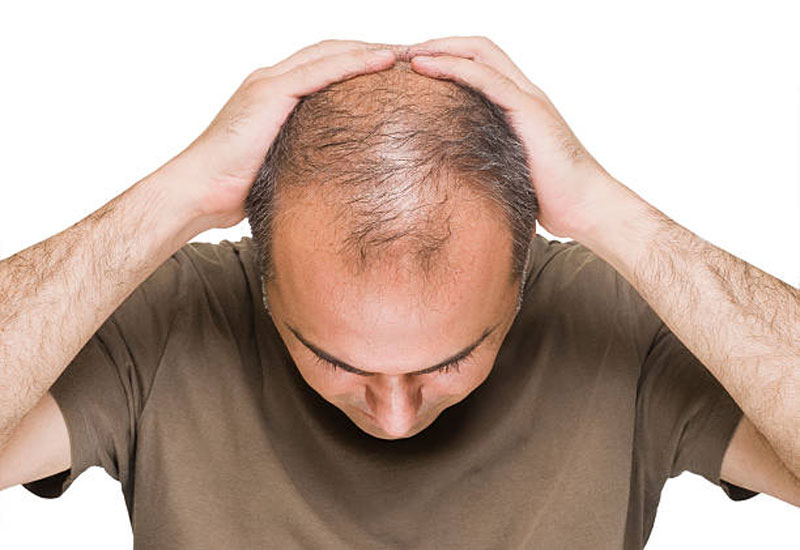
1- Androgenic alopecia is exclusive to men
While androgenic alopecia affects both men and women, the properties of the condition vary between the sexes. Androgenic alopecia in men is also known as male pattern hair loss and is characterized with a predictable traditional pattern of her loss.
Female androgenic alopecia, on the other hand, poses characteristics that are the polar opposites of male androgenic alopecia. In female pattern hair loss, balding occurs in a diffuse unpredictable pattern.
The discrepancy in properties affects the treatment plan in either conditions. The former, having Present the element of predictability, can be treated with hair transplants; whereas the latter cannot.
2- Oils and serums are effective in treating hair loss
The quality of hair requires both exogenous and endogenous care. A healthy diet that is inclusive of all the essential vitamins and proteins is where long lasting hair strength stems from. For shinny locks, you have to supply your body with the necessary building blocks for it to sew the keratin strings of your dreams. The lack of essential nutrients in your diet will result in the growth of brittle and weakened hair.
In addition, vitamins play a significant role in regulating the hair growth cycle by elongating the phase of active growth and delaying the telegenic phase. However, overdosing on certain vitamins can reverse their beneficial effects on hair growth. Therefore, you should run blood tests every six months to monitor the contents of the organic compounds in your blood.
3- Hair loss is the result of increased testosterone levels
Follicular units could either be prone to hair loss or resistant to hair loss. The closer we move towards the crown and hair line, the higher the probability of finding androgen sensitive is. The follicular units prone to hair loss have higher numbers of DHT (an aggressive version of testosterone) receptors. Therefore, they are susceptible to miniaturization.
In summary
Hair loss myths rise either simply for fun or an agenda set by beauty corporations to capitalize on the issue. Regardless of the motive, you should always do the diligence to care for your hair. Contact us for free consultation and more information
Comments
comments